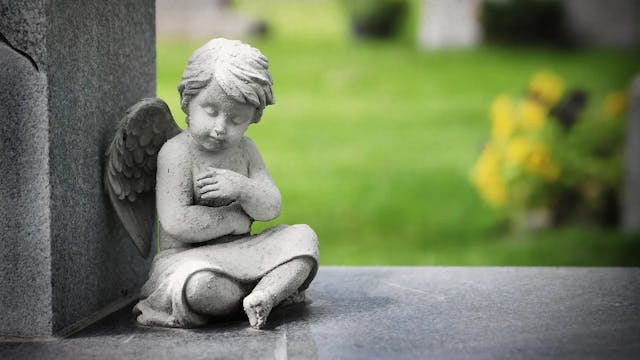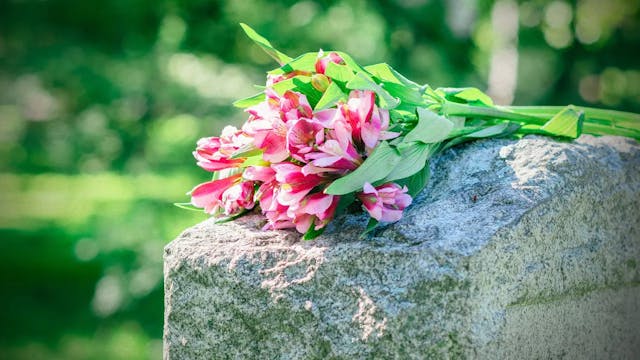The journey through grief happens in stages: accepting the loss, processing it, adapting to a new normal, and moving forward.
Coping with death requires us to accept the loss of our loved one and let ourselves experience emotions. Grief groups can be a powerful way to process alongside other people on the same journey. We must resist the danger of isolation by surrounding ourselves with people able to listen and offer support, as well as prioritize self-care.
“You can physically see relief come over them when they’re able to tell the story of what happened.”
We need to find a new normal externally, internally, and spiritually, and we must take our deceased loved one with us as we move forward in life without them.
One of the most helpful things we can do while walking with someone in grief is to just listen to them. “Tell me what happened.” From beginning to end, however long it takes, simply listen with patience and compassion.
Up Next in Supplemental Videos
-
What Do Catholic Cemeteries Do for Mi...
Many Catholic cemeteries offer free burial services for families who experience a miscarriage or the death of a newborn.
Catholics believe that human life is sacred from conception to natural death. As such, many Catholic cemeteries participate in a pregnancy or infant loss program.
At no c...
-
What If My Loved One Was Already Crem...
Cremation does not mean God cannot or will not raise that person’s body on the last day.
Traditional burial gives a fuller witness to our hope in the resurrection, and the Church recommends it over cremation. However, God does not exclude someone from the future resurrection of the body simply...
-
What Do We Do When We Visit a Cemetery?
Cemeteries can be a place of healing where we remember and pray for our deceased loved ones.
What should we say or do when we visit a grave or niche? Many people find it peaceful to walk through cemetery grounds or simply sit by the tombstone. Whether we say a decade of the rosary, offer speci...



